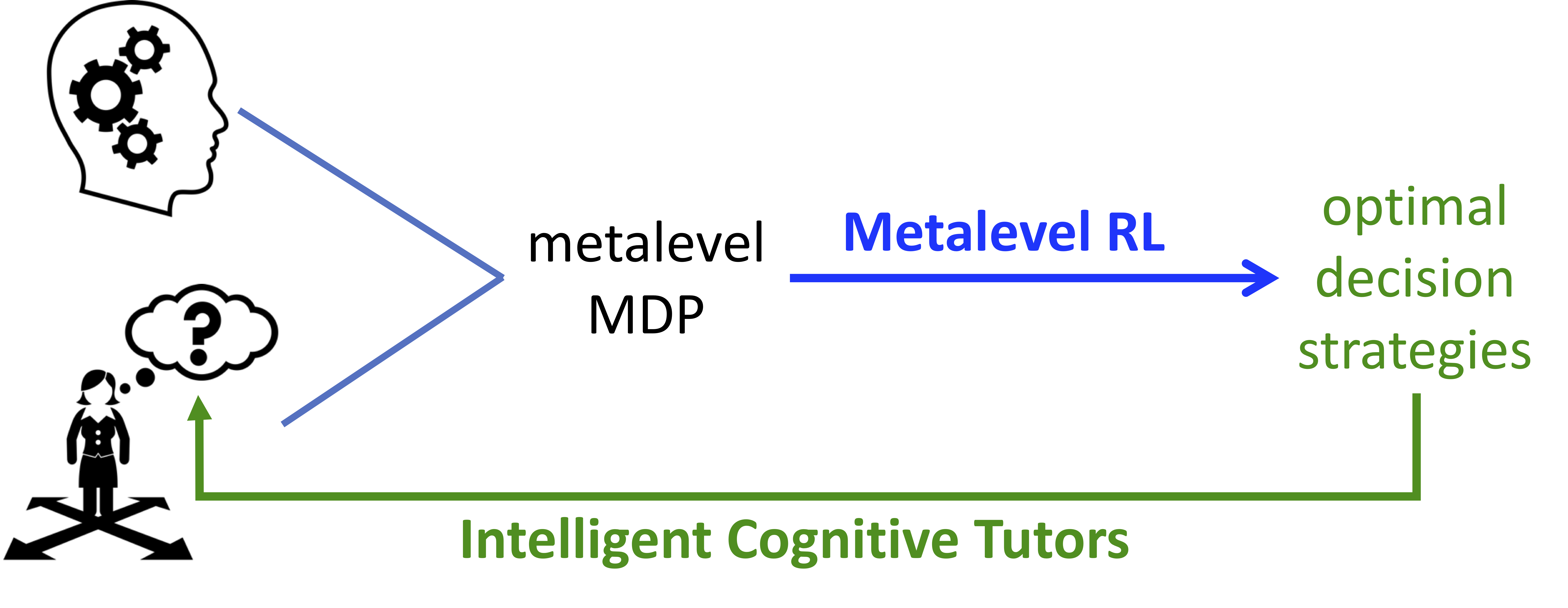Digital Companions for Goal-Setting, Goal-Achievement, and Self-Improvement
Computing Optimal Sub-Goals
A Gamified App that Helps People Overcome Self-Limiting Beliefs by Promoting Metacognition
Helping People Choose Their Values
A Digital Companion That Helps People Achieve Their Goals
Development of Measures for Goal Setting and Pursuit
Value-Driven Hierarchical Goal-Setting
Effective Goal-Setting
AI for Productivity
Solve Education
Intelligent Cognitive Prostheses
Computing Optimal Incentive Structures
Executive Functions Training
Discovering and Teaching Effective Strategies for Planning and Decision-Making

To strengthen the scientific foundation for fostering rational decision-making, our research asks two questions:
- What are the optimal cognitive strategies for making different types of decisions?
- What is the most effective way to teach those strategies?
We addressed these questions as follows:
1. Discovering Optimal Decision Strategies
To answer the first question, we apply our resource-rational framework to define optimal decision strategies as the optimal policy of a meta-level Markov decision process []. We develop reinforcement learning methods to approximate those optimal cognitive strategies. This approach is called automatic strategy discovery. We worked on three projects to improve different aspects of our initial methods of automatic strategy discovery. The scalable strategy discovery project made our computational methods increasingly more scalable so that they could be applied to discover the optimal decision strategies for increasingly larger and more realistic decision problems [
]. The interpretable strategy discovery project developed computational methods for generating human-interpretable descriptions of the discovered strategies [
]. The robust strategy discovery project made our strategy discovery methods robust to uncertainties and inaccurate assumptions about the decision environment [
]. We primarily worked on decisions that require looking several steps ahead (planning), but we also worked on optimal strategies for financial decisions with uncertain outcomes and decisions about which project to work on.
2. Intelligent Cognitive Tutors
To answer the second question, we developed and tested educational software for teaching the automatically discovered decision strategies. Our intelligent cognitive tutors were able to significantly improve people's decision-making literacy by teaching them optimal cognitive strategies for planning and decision-making under uncertainty []. We found that teaching by demonstration, verbal instruction, and practice with feedback can be highly effective at teaching rational strategies for planning and decision-making [
]. We applied our approach to increasingly larger and more complex decision-making tasks, such as planning in large partially observable environments. The most realistic decision-making skill taught by our cognitive tutors is deciding which project an organization should pursue next.